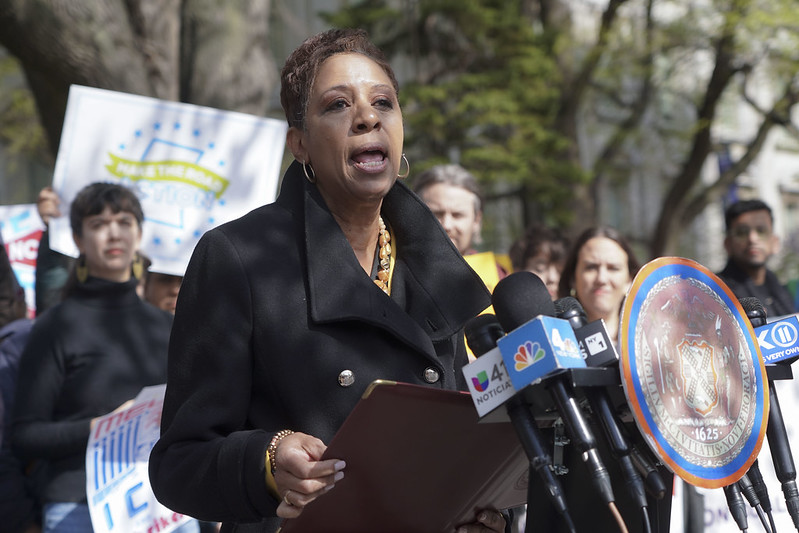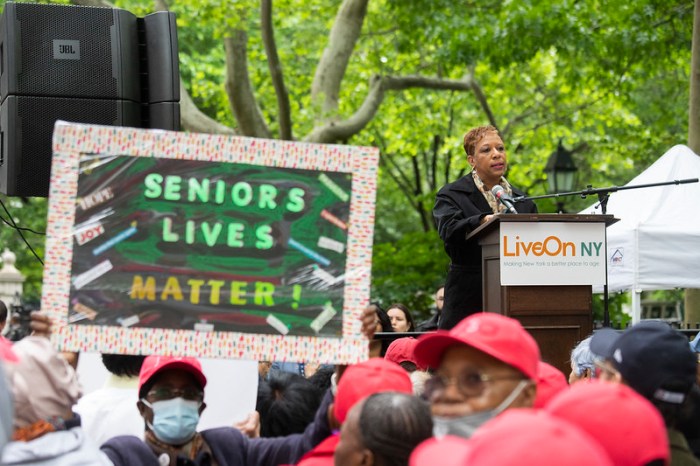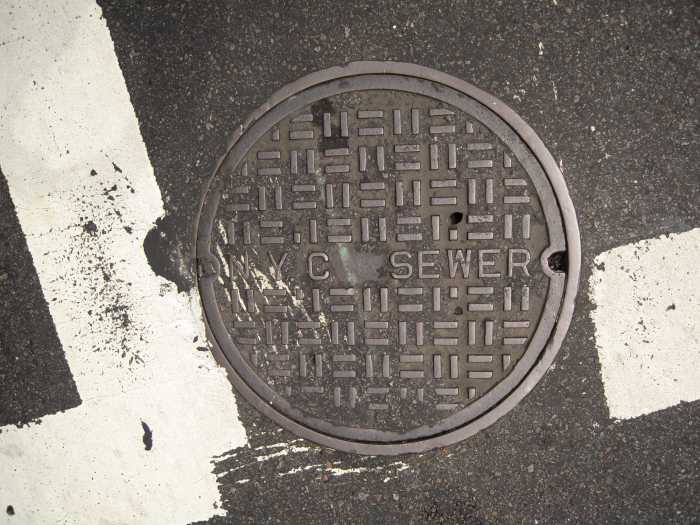The City Council sued Mayor Eric Adams’ administration on Tuesday in a bid to block its recent executive order allowing federal immigration agents to re-establish offices on Rikers Island.
The suit alleges that Adams directed First Deputy Mayor Randy Mastro to sign the executive order last week as part of a “corrupt bargain” with President Trump’s administration that led to it dropping his federal corruption case. Adams announced his intention to sign the executive order in February, shortly after meeting with Trump’s “Border Czar” Tom Homan, just days after Trump’s Justice Department moved to dismiss his charges.
“Mayor Eric Adams, as part of a corrupt quid pro quo bargain to end the federal criminal case against him, promised to let United States Immigration and Customs Enforcement (ICE) return to Rikers Island and set up an office,” the suit reads. “The Trump Administration has repeatedly confirmed that they will use that office and ICE’s presence on Rikers to supercharge their mass deportation efforts.”
Council leaders believe the move leaves the city’s undocumented immigrants vulnerable to deportation by opening the door to cooperation between ICE and city law enforcement on civil rather than just criminal matters — in violation of its sanctuary laws.

“Once again, this City Council is standing firm to protect the rights and safety of all New Yorkers against attacks by the Trump administration—because the city’s mayor won’t stop placing his own personal interests ahead of the people of our city,” City Council Speaker Adrienne Adams said in a statement.
The mayor, his attorneys, and DOJ officials have consistently denied that there was any quid pro quo.
The council wants a state judge to grant a temporary restraining order and a preliminary injunction to immediately prevent ICE agents from once again operating on the island jail complex for the first time since 2014. The move comes after the council voted last week to give Speaker Adrienne Adams the authority to sue the mayoral administration on the body’s behalf.
Mayor Adams, Mastro, and the city Department of Correction are all named as defendants in the legal action.
The council argues that the executive order violates city conflict of interest law because of Mayor Adams’ alleged deal with the Trump administration. It also alleges that Adams did not truly remove himself from the process of approving the order, even though he delegated the task of signing it to Mastro.
“Mayor Adams denies having recused himself from the decision, and conflicts-of-interest laws that bar the compromised Mayor from himself taking official action also bar him from enlisting Mastro to do his bidding,” the suit reads.
‘Wildly premature’
While Mastro insists he conducted an “independent assessment” before deciding to sign the executive order, the suit argues it was not “meaningful.”
During a news conference following the suit, Mastro said it was “wildly premature” for the City Council’s attorneys to push for emergency relief because there are currently no federal agents on Rikers Island and a memorandum of understanding (MOU) between the city and the feds is still being worked out.
Mastro also contends that the lawsuit reads like a “political polemic” and argued that the executive order does not violate the city’s sanctuary laws.
“The political attacks are beside the point as a matter of law,” Mastro said. “This case will be decided on the plain language of the executive order and whether it complies with local law, and I read barely a word of that in this lawsuit.”
Mastro argues the move was in part necessary to target “transnational gang” members who were designated as terrorists by the Trump administration and believed to be held on Rikers Island.
The first deputy mayor added that Adams gave him the authority “to make an independent assessment and an independent decision.”
“I made that independent assessment,” Mastro said. “I spent part of every business day since day one on the job focused on this issue. I went to Rikers multiple times. I talked to corrections officials, corrections investigators, and I sat down with federal law enforcement.”

































